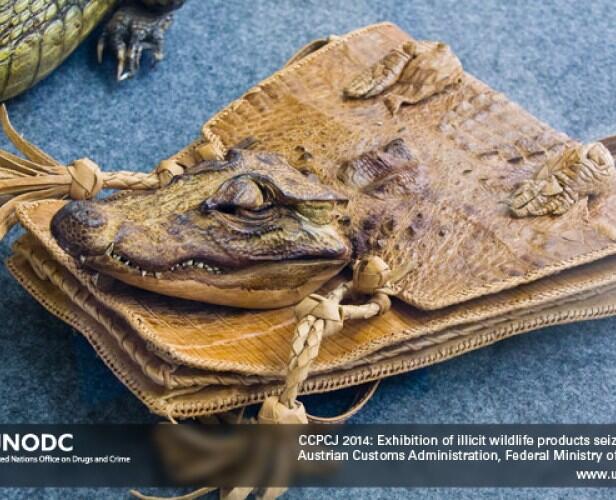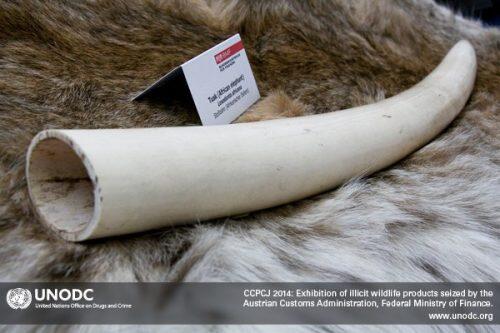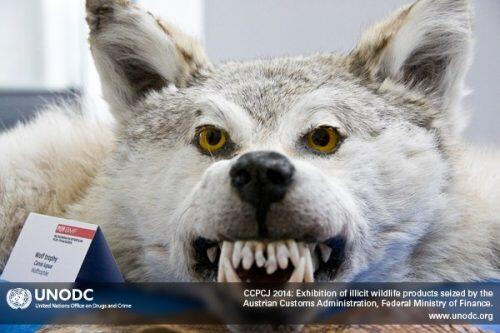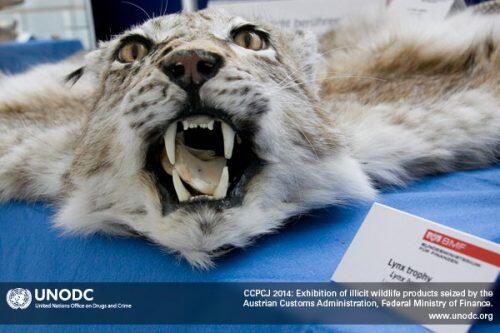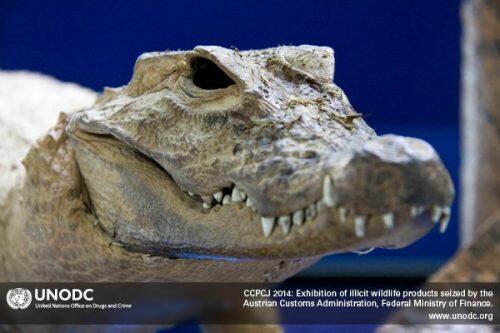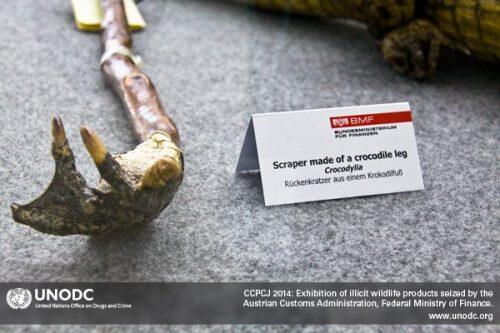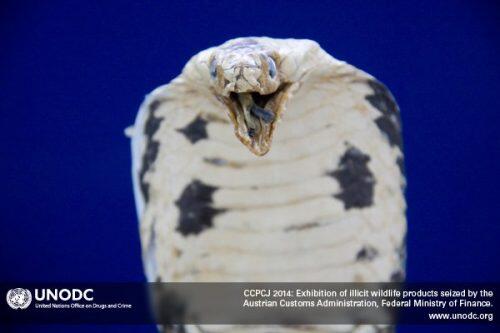Crimes related to wildlife and forests have become one of the largest transnational criminal activities today, besides drug trade, weapons, and human trafficking. In addition to the direct environmental impacts they cause, the illicit trade of natural resources deprives the developing economies of billions of dollars as a result of the loss of revenue.
Environmentalists confirm to “greenarea.info” that “there is information about rising indicators and evidence that this illegal trade is witnessing unprecedented activity in the Middle East”. They add that “traders benefit from the ongoing conflict in Syria, knowing that this country is now used as a crossing point for the smuggling of wild animals to Iraq, Jordan, Lebanon and Turkey.”
From tigers and lions, to chimpanzees and other endangered animals, dozens of cases that confirm the transmission of these animals from Africa to the Middle East were recorded. All this was happening by obtaining forged licenses that belong to the “Convention on International Trade in Endangered Species of Wild Fauna and Flora”, as the forgers pretended. After that, those animals were sold at expensive prices to customers for personal acquisition, or for display in zoos, or to be used in circuses’ games.
The number of elephants killed in Africa annually is in the range of 20,000 to 25,000 per year out of a population of 420,000 to 650,000. According to recent data from the Proceedings of the National Academy of Sciences, as many as 100,000 were killed in a three-year period from 2010 through 2012. For forest elephants, the population declined by an estimated 62 per cent between 2002 and 2011. Poached African ivory may represent an end-user street value in Asia of US$165 to US$188 million of raw ivory, in addition to ivory from Asian sources.
According to new figures released today by CITES, overall elephant poaching rates remained virtually unchanged in 2014 compared to 2013, and still exceed natural elephant population growth rates, meaning a continued decline in elephant numbers overall is likely.
CITES reports that 1,215 rhinos were poached in South Africa alone in 2014 – this translates to one rhino killed every eight hours. Approximately 94 per cent of rhino poaching takes place in South Africa, which has the largest remaining populations. The involvement of organized syndicates has seen poaching rise from less than 20 in 2007 to over 1,000 in South Africa in 2013, and rhino horn poached in 2014 is valued at an estimated US$63 to US$192 million.
The Great Apes Survival Partnership (GRASP) reports that the illicit traffic in live great apes is an increasingly serious threat to chimpanzees, gorillas, and bonobos in Africa and orangutans in Asia, with seizures averaging 1.3 per week since 2014. Many more great apes die during capture and captivity than ever enter the illicit traffic; it is estimated that a minimum of 220 chimpanzees, 106 orangutans, 33 bonobos, and 15 gorillas have been lost from the wild over the last 14 months, according to GRASP.
The Spix’s macaw, the bird portrayed in the animation “Rio” by the friendly character “Blue”, is one of the most endangered species on the planet. Today there are only 80 Spix’s macaws in the world, the majority of which are kept by foreign bird keepers (in Spain, Germany and Qatar).
Pangolins, also known as ‘scaly anteaters’ are among the world’s most trafficked mammals on earth, with over one million animals taken from the wild in the past decade.
The United Nations Development Programme (UNDP) is launching new initiatives to halt the illegal trade in wildlife in Asia and Africa. These initiatives will tackle wildlife crime by focusing on law enforcement, regulations, and engaging the private sector and strengthening collaboration between governments within and across the two regions.
In mid-2014, UNODC launched a “Global Programme for Combating Wildlife and Forest Crime” – a comprehensive, four-year initiative to build government capacity in preventing and combating these crimes at regional, national and local levels, and to raise awareness to reduce demand for wild fauna and flora. The Global Programme is working for, and with, the wildlife law enforcement community to ensure that wildlife crime, illegal logging, and related crimes are treated as serious transnational organized crimes.
The illegal trade in precious timber such as rosewood is also lucrative, well organized, transnational and involves corruption. Substantial volumes of CITES-listed rosewood are smuggled from Madagascar, Southeast Asia and Central America. Between June 2011 and June 2014, more than 4,800 tonnes of illegal Rosewood that originated from Madagascar were seized by authorities in various countries in Eastern Africa and Asia. In December 2014, Hong Kong Customs made a seizure of 92 tonnes of non-declared “Honduras rosewood” arriving from Guatemala via Mexico. Illegal trade in “Siamese Rosewood” from Southeast Asia has also escalated in recent years.

